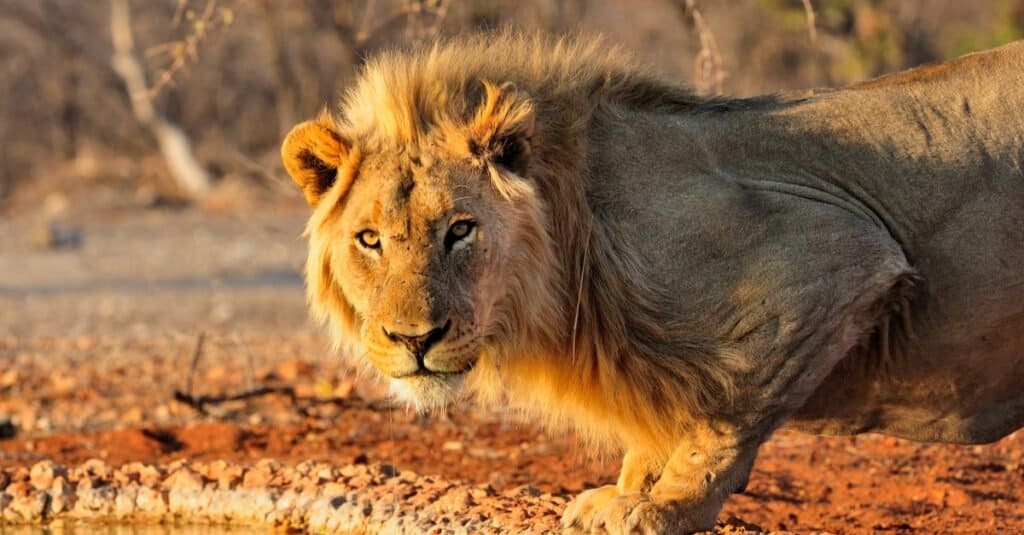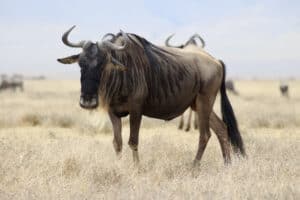Continue reading for our analysis...

This footage was captured in the magnificent Mara game reserve. It shows some ‘nomad’ lions (who do not currently have their own territory) trying to take over the territory of some other male lions. On this occasion, they were unsuccessful and were driven away. Click below to see the full video of this remarkable confrontation.
Are Lions Territorial?

Lions are highly territorial and defend their home range.
©Stu Porter/Shutterstock.com
Yes! Lions are a territorial species. They are highly social animals who live in prides which are made up of mainly females and a few males. The pride has a home range where they live and hunt. It is possible for territories to overlap but many are exclusive or at least have a central area that the pride considers to be for their use only!
The size of the home range is a variable. If there is plenty of prey it will be smaller. If prey is scarce the home range can spread over thousands of square miles.
How Do Lions Defend Their Territory?

Lion roars can be heard up to three miles away.
©Stephanie Periquet/Shutterstock.com
Even though we see the males in action in this clip, both males and females can be involved in defending their territory. The males tend to concentrate on the edges whilst females focus on defending the center of the territory. In general, larger prides are most successful at defending their areas.
Lions roar to defend their territory and a lion roar can be heard up to three miles away! The pride may roar as a group and it clearly advertises the fact that this territory is occupied and that the pride is prepared to defend it. Most territorial defense is posturing, and the lions avoid physical conflict if they possibly can because it carries the risk of injury and even death. Lions are especially cautious when they can see that they are outnumbered.
Scent marking plays an important role in advertising who the territory belongs to. Lions will leave urine and poop in prominent places and will scratch the ground. Urine sent marking is mainly performed by males and females only occasionally spray urine. Most sent markings can be found around the edges of the home range, especially where territories overlap and near high-traffic areas such as water holes or rivers. At least this conflict seemed to end without any of the lions getting hurt!
Is It Normal Behavior for Lions to Attack Intruders?

Lions are territorial animals.
©SteffenTravel/Shutterstock.com
While lion social behaviors can be somewhat complex, it is normal behavior for lions within the pride’s territory to take on the role of defenders. They may oversee an expansive area that can span around 100 square miles of grasslands, scrub, or open woodlands.
Typical lion behavior also includes scent-marking. They mark their territory with urine, roar to warn intruders, and chase away any animals that come too close.
Thank you for reading! Have some feedback for us? Contact the AZ Animals editorial team.







